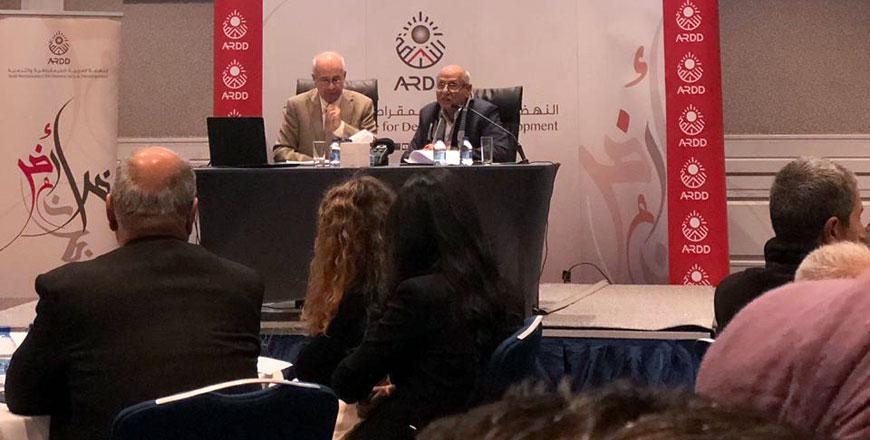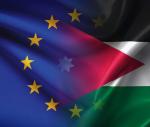You are here
World Arabic Language Day stresses importance of language identity, preservation
By Maria Weldali - Dec 21,2019 - Last updated at Dec 21,2019

The Arab Renaissance for Democracy and Development held seminar titled ‘Our Linguistic Security Between Reassurance and Concern’ on Wednesday to mark World Arabic Language Day (Photo by Maria Weldali)
AMMAN — Marking World Arabic Language Day on Wednesday, and out of the belief that Arabic is central to civic participation among Arab Nations, the Arab Renaissance for Democracy and Development (ARDD) held a seminar in Amman titled “Our Linguistic Security Between Reassurance and Concern”.
World Arabic Language Day is celebrated every year on December 18. The international day was established by UNESCO in 2012 commemorating the UN’s adoption of Arabic as its sixth official language on December 18, 1973.
The seminar was led by Ramzi Munir Baalbaki, professor of Arabic at the American University of Beirut and moderated by Chairman of the Board of Trustees of the Arab Renaissance Organisation Zaid Ayadat, with the aim of highlighting the link between language and identity and their role in achieving Arab renaissance.
Baalbaki pointed out that the Arabic language is considered one of the most widely spoken languages in the world, with a 500 million speakers, with the numbers “steadily increasing”. However, the widespread use of the language has not has not been reflected in cultural and scientific spheres.
He added that Arabic is used in a “shallow” way, as “the key elements which ensure the stability of the language have long been lacking”.
Baalbaki highlighted the concept of linguistic safety and security, parallel to economic, political and food security.
“Arabic is used on electronic and online platforms in the form of slang or a blend of standard Arabic and slang, which is a worrying trend for the spread of Modern Standard Arabic,” the professor noted, adding that Arabic is an official language in 25 countries, where there is a mingling between the standard Arabic and the spoken dialects.
According to a UNESCO report, a language’s vitality depends upon the situation of mother-tongue speakers, language transmission over the years and the sheer number of speakers.
Baalbaki stressed that slang is a “crucial part” of a language, but that a problem occurs when it is used in certain domains at the expense of the standard language.
He noted that native speakers are sometimes reluctant to use their own language, adding: “When native speakers start giving up their own language, this means that the language has reached its lowest level.”
ARDD aims at promoting innovation in language protection and usage through its annual programmes, Samar Muhareb, CEO at ARDD told The Jordan Times during the seminar.
“Arabic is the language of our DNA, so there is the Arabic language protection Law No.5 of 2015, which governs its use,” Muhareb said.
Related Articles
AMMAN — The political, social and intellectual “indifference” of Arabic speakers towards their language puts the once historically renowned
AMMAN — Marking World Arabic Language Day, which is celebrated every year on December 18, Jordanians express their mother tongue’s importanc
When e-mailing, texting or even writing on her Facebook page, Hala Hamodeh rarely uses Arabic or English. She uses Arabizi, which is Roman character-based Arabic language slang.



















